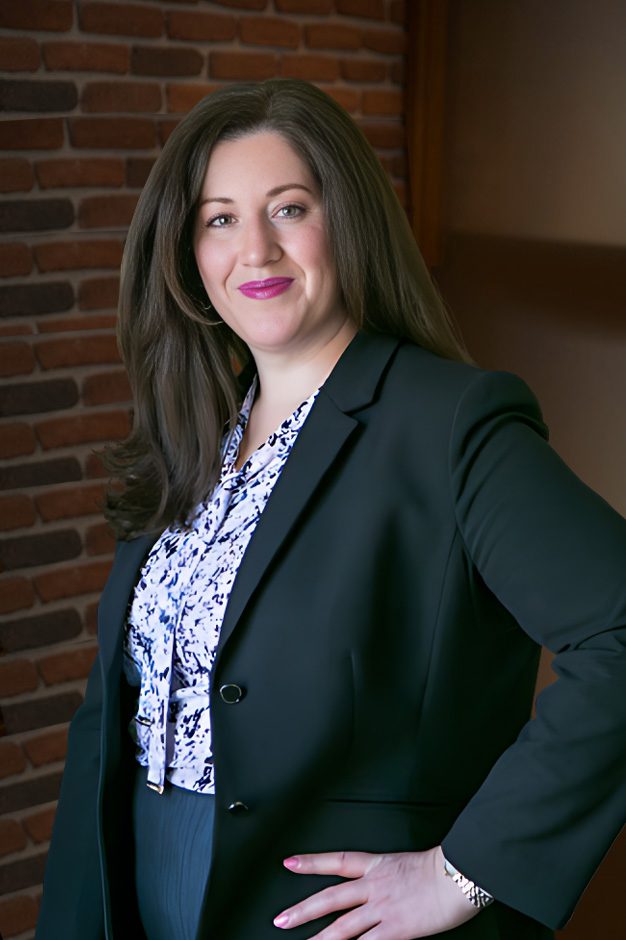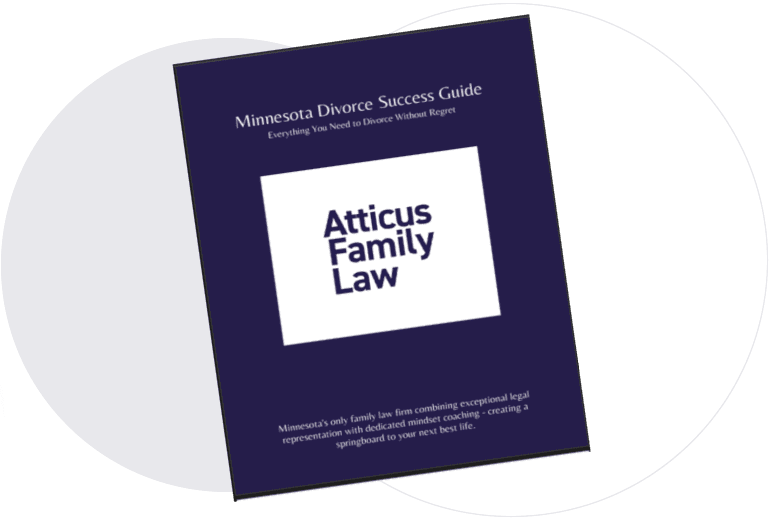Custody & Parenting Time
If you're dealing with custody matters or parenting time schedules, our experienced attorneys can help. We understand that these are difficult and emotional matters.
Custody & Parenting Time Lawyers
Establishing custody, whether in a divorce or on its own, can be a fearful and hurtful process for adults; what happens can be emotionally jarring, if not damaging, for children who are caught in the middle of a failing relationship. Some of the most contentious family law decisions relate to how and where children will be raised. Parenting time and custody can be more complicated if there are questions about a child’s paternity or if a child’s well-being is in danger. Reaching an outcome that is in the child’s actual best interests, which very well is not what the other parent would have the court believe, requires experienced legal guidance.
Understanding the Different Types of Child Custody
When making determinations of child custody, 10+ factors will be taken into account, including but not limited to ages, relationships, history, concerns over alcohol or drug use, mental health, child abuse, neglect, sexual abuse, co-parenting issues, and abuse amongst parents. Before you can begin to make well-informed decisions for yourself and your children, it’s important to understand the two types of custody that must be decided: Legal Custody and Physical Custody.
Physical custody is what most people think of when speaking about custody. The parent who is awarded physical custody is the parent with whom the children primarily live and the one who makes the routine daily decisions for the children.
Determining who has physical custody is often emotionally difficult for parents since they are accustomed to seeing their children every day. It is important to remember that whatever parenting time schedule is ordered will result in each parent making sacrifices and that the best interests of your child should be the focus of the physical custody determination.
Parents can be awarded joint physical custody, meaning that the child splits time between two parents; joint physical custody does not necessarily mean that each parent has the child for 50% of the time. Further, the assignment of sole or joint physical custody does not necessarily dictate the amount of child support due from one parent to the other.
Some see “Sole Physical Custody” as merely a hollow label, and others see the importance of how the court orders physical custody. Only an experienced, well-read attorney can assist in appreciating the distinctions.
Legal custody is the authority to make major decisions concerning your child and may be awarded to one or both parents. Major decisions include non-emergency medical issues, choice of school, religious upbringing, and consent to obtain a driver’s license. There is a presumption within the law that legal custody will be granted jointly, except the presumption reverses when relationships have a history of domestic abuse or other compelling circumstances. A parent can overcome the presumptions with the help of an experienced, well-read attorney.
What is Parenting Time?
When parents live in separate homes, they usually need a schedule to set out times when they will each have the children. These parenting time, or visitation, schedules can be, and we believe should be, comprehensive. Not only should they include weekdays and weekends, but they also take into account holidays and school breaks. Further, they need to be thoughtfully constructed – perhaps you want to make sure the person who has Labor Day with the children also has the rest of the weekend so that they have a full three days together. Parenting time agreements are also expected to have provisions for vacations, telephone contact, and transportation needs.
Under the law, there is the presumption that the non-custodial parent should receive a minimum of 25% of the parenting overnights (however, with good reason, this presumption can be overcome). Further, the number of overnights over the course of a year affects the child support paid – the more overnights that the non-custodial parent has, the less expense the custodial parent will bear, and thus there is often a reduction in the support paid to the custodial parent. The challenging mathematical calculations that go into setting parenting time are very important and usually require legal guidance.
Creating Agreements that Benefit Children and Parents
It is best to have a customized parenting time schedule since it has such a significant impact on the children. When the court decides parenting time, there is a risk that the court will apply a “boilerplate” schedule that is unlikely to suit your needs. These standard solutions often do not work well with the work schedules, drive times, family traditions, vacation plans, and social obligations that parents have. The result is an inefficient schedule that is likely to undermine the meaningful time that you have with the children.
Customized parenting time is directed by the children’s developmental needs. Atticus Family Law uses the research and advice of experts in child development to assist in developing a parenting time plan that will evolve as the children grow and that adapts to your family’s particular structure. We work with our clients and their co-parents to craft parenting time schedules that not only serve their present needs and limitations but are also flexible enough to accommodate the changes that will likely occur in the lives of the parents and children in the future.
A Skilled Advocate Working to Protect Your Parental Rights
Due to the intricacies involved, mediation or other means of reaching an amicable resolution is often the preferable option for parents who want to personally tailor their child custody and parenting time agreements to fit their children’s needs. Considering the monumental impact that these arrangements will have on family relationships and routines, parents often want to avoid leaving these matters up to the court. The lawyers at Atticus Family Law in Stillwater, Minnesota, are experienced custody attorneys with insightful mediation training. We work with clients to craft child custody and parenting time arrangements that fit the needs of each family. Contact our office today to schedule a consultation.
Personal Perspective From An
Atticus Family
Law Attorney

A Parent In Crisis – “We Were Able To Turn His Case Around.”
Five years ago, Atticus Family Law secured shared custody and 50/50 parenting time for Lucas*, a Minneapolis father of a four-year-old daughter.
Lucas lived with the child and the child’s mother, Zoe, for years after she was born. But six months prior to Zoe filing for sole custody, they had broken up. Lucas’ claim for these “father’s rights” was made more difficult as he had previous opioid use issues — in the wake of the breakup and separation, Lucas went back to using. By the time the case was filed by Zoe’s attorney, his usage was so severe that Zoe was able to get an emergency order that seriously limited Lucas’ access to his daughter. In many cases, this sort of temporary order spells doom for the future of the dad’s parental rights.
With the support of his parents, Lucas stopped using, sought treatment, and hired Atticus Family Law. We used the facts of his sobriety, his treatment, the stability he had established after moving back in with his parents, and his new secure job to reposition Lucas for the rest of the case.
At the next hearing, the judge was glad to hear Lucas had sought treatment but was openly skeptical of his future. The judge recognized that those that struggle with chemical addiction often need multiple treatment attempts if they are to have long term sobriety. Nonetheless, we persevered.
Zoe agreed with my plan for all of us to attend a Social Early Neutral Evaluation. At this form of mediation, the parties and their counsel meet with a pair of neutral evaluators, one trained in law and another in child development, to spend a half-day understanding the issues of the parties, their relationships with their daughter, and to make recommendations as to how best to proceed given how the judge may rule. By the time of this evaluation, a couple of months later, Lucas had even more sobriety, more support systems, and a greater track record of stability. We prepared Lucas for the evaluation, and it went swimmingly.
At the Evaluation, we were able to showcase his positive future while extending an olive branch to Zoe. At the end of that session, the parties reached a binding agreement that secured for Lucas joint legal custody, joint physical custody, and equal parenting time with their four-year-old daughter once Lucas moved back to Minneapolis from his parents’ house. His opioid usage, if it had continued, very well could have cost him shared custody and 50/50 parenting time for the years ahead (if not forever); instead, we were able to turn Lucas’ case around. The client today continues to have a great relationship with his daughter and actively, amicably shares custodial rights with Zoe.
– Alexandra Reynolds
by Marki K.
“I can’t thank Atticus Family Law enough for everything they did for me during my divorce. My case was especially ...“
by Jeremy B.
“Atticus Family Law proves that Dad's can win custody battles and divorce outcomes that insurmountably exceed expectations. The entire Atticus ...“
by Kelly K.
“Regarding my thoughts about Tara and the AFL coaching program, I absolutely found value and direction from my sessions with ...“
by Tim R.
“Matt Ludt and the team at AFL are true professionals who consistently showed their commitment to client care and satisfaction. ...“
by Nicole H.
“I had a great experience working with the team at Atticus. My case was challenging, but they helped manage the ...“

FREE Download of the Minnesota Divorce Success Guide: Everything you need to divorce without regret.
- Decisions about the children’s future and parenting time.
- Responsibility for spouse’s debt and spending.
- Separation of assets and income.
- Who will work on my case?
- How long will it all take?
- How will you accomplish my goals?
- How much will it cost and what do the fees include?
Want To Get A Head Start?
Enter your information to download these guides to get a leg up in securing a fair outcome in your family law case.

Schedule a consultation
Ready For A Fresh Start?
Ready to take the first step towards a brighter future?
Click the button below to connect with our experienced divorce attorney and start your journey toward a better tomorrow.
Get Started Now






